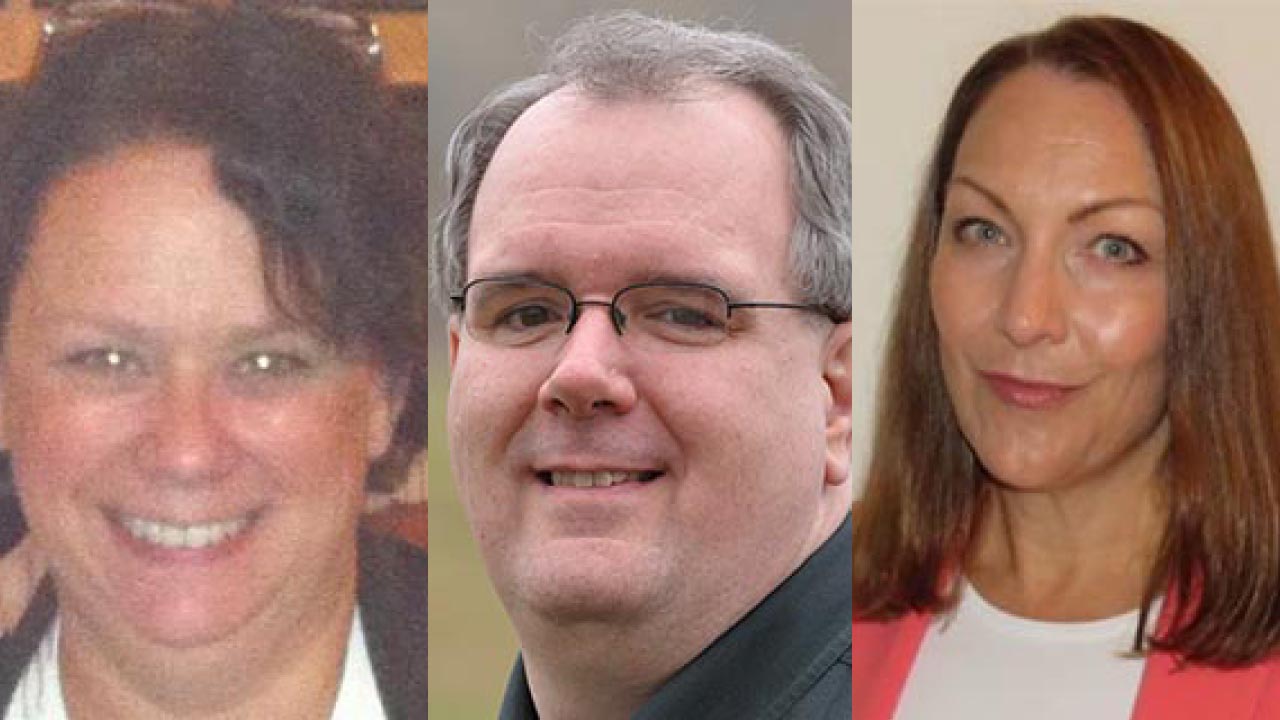- YouTube
- TikTok
OU’s Research Development team guides investigators through proposal process

The Research Development team at Oakland University has decades of experience working with investigators across all disciplines to develop and refine their project ideas, identify appropriate funding sources, craft targeted proposals, and secure funding.
“A strong funding proposal, whether for research or some other kind of project, takes months to prepare, and the chances of funding hover around 10 - 15%,” said Dr. David Stone, OU vice president for research. “To improve those odds, and make that time worthwhile, we use research development to support and assist faculty with every step in the process, from planning and ideation, to the choice of funder, to the honing of the actual proposal. At universities like OU, where faculty face high teaching and service loads, these kinds of supports help lower the burden on faculty and allow them to be more competitive.”
What is Research Development?
Research development is shorthand for a number of different activities that help investigators in the earliest stages of the research process right up through submission of a proposal to an external sponsor. Research development has only been a nationally recognized profession for the past dozen years, but Dr. Stone, Michael Spires, OU’s research development officer for the sciences; and Dr. Andrea Buford, the director of the OU office of sponsored programs, have all been part of it since its inception. In fact, both Stone and Spires have served as president of the National Organization for Research Development Professionals.
“Our job can take a number of different forms, depending on who we’re working with, where they are in their career, how familiar they are with the external funding process, and how familiar they are with the sponsor that they're approaching,” said Spires.
Some of the things that Research Development can help with include (but are not limited to):
• Development of a long-term research plan tailored to the investigator's career stage, background, experience, and future goals;
• Development of an idea, problem, or research question into the nucleus of a fundable proposal;
• Identification of potential funders for a particular idea/question/project and, where there are multiple possible funding sources, prioritizing the ones to approach and when;
• Identifying the most appropriate program(s) at an external sponsor for a given project;
• Translating sponsor guidelines, policies, and procedures for faculty, and providing assistance with writing non-technical sections of proposals (facilities statements, data management plans, mentoring plans, project management plans, budget justifications, etc.);
• Reviewing and editing research narratives, specific aims, abstracts to ensure that they are clearly written, include all the requested information, and meet the expectations of reviewers;
• Understanding and responding to reviewer feedback on a declined proposal.
“At OU, in addition to supporting incoming research faculty via our PI Academy program, research development officers work one-on-one with faculty to help them identify funding programs that fit with their research goals and strategically develop competitive proposals for those programs,” said Lori Simoes, research development officer at OU.
“Research development officers are here to help connect faculty with resources and collaborators across campus, as well as those at other universities if needed, in the pursuit of research funding,” Simoes added. “Similarly, we help remove obstacles that impede access to resources and other forms of support.”
While no one is required to utilize the research development services available at OU, there is strong evidence to suggest that doing so improves an investigator's chances of securing funding from external sponsors to support their research and improves the quality of proposals that OU submits. “Since adding research development at OU, we have nearly doubled our annual level of research funding,” says Stone.
“Call early, call often,” Spires said. “The more time we have, the more support we can provide. Call, or come see us, if you have a question, if you need some information, if you have a draft you want reviewed. We’ll help you craft the strongest, best-positioned proposal we possibly can in the time we have, but if we don’t hear about a project until just before the deadline, that’s much harder to do.”
How it Works
The process often starts at the whiteboard with the faculty member outlining a new idea or experiment to the research development officer. This leads to a discussion about how that idea can be framed in order to align it with the needs or expectations of a specific funding agency. Once the agency is identified and its rules and limitations understood, the faculty member and the research development officer trade drafts of the narrative, budget, and other elements of the proposal until the documents are complete and the proposal can be submitted by the responsible grant and contract officer.
Usually feedback from the research development officers is informational and advisory. However, when it comes to interpretation of sponsor guidelines, university policies and procedures, and/or applicable laws, some changes may be mandatory before a proposal can be submitted, so as to safeguard both the investigator and the university.
“I've been doing this for 15 years and I've seen quite a lot of proposals,” Spires said. “I know what a good one looks like and I know what a bad one looks like. I know most of the major sponsors and what they expect and how they like things to be presented. Our goal is to get proposals out of the door that are as strong and well supported as we can possibly make them."
To learn more about developing proposals and research ideas, visit www.oakland.edu/research/faculty-staff-resources/developing-proposals-and-research-ideas.


 April 14, 2022
April 14, 2022